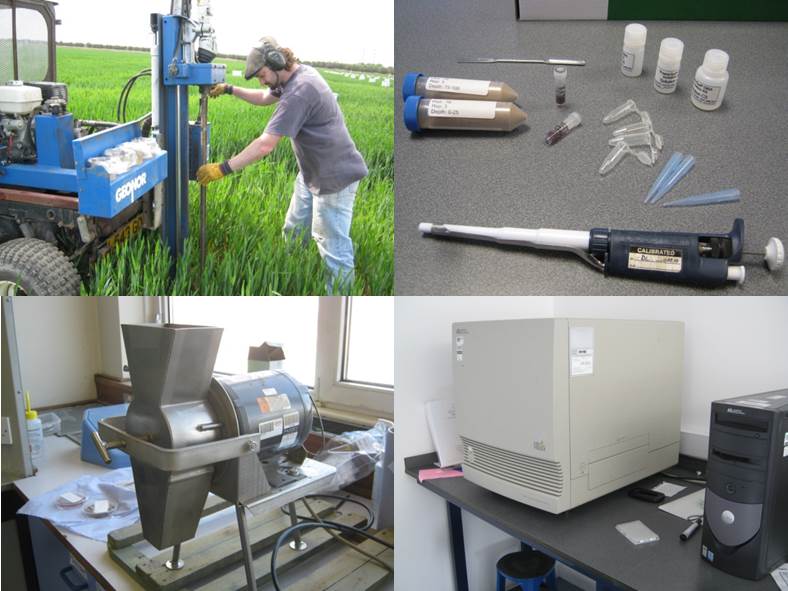Root research on field grown crops is hindered by the difficulty of estimating root biomass in soil. Root washing, the current standard method is laborious and expensive. Biochemical methods to quantify root biomass in soil, targeting species-specific DNA, have potential as a more efficient assay. We combined an efficient DNA extraction method, designed specifically to extract DNA from soil, with well-established quantitative PCR methods to estimate the root biomass of twenty-two wheat varieties grown in field trials over two seasons. We also developed an assay for estimating root biomass for black-grass, a common weed of wheat cultivation. Two robust qPCR assays were developed to estimate the quantity of plant root DNA in soil samples, one specific to wheat and barley, and a second specific to black-grass. The DNA qPCR method was comparable, with high correlations, with the results of root washing from soil cores taken from winter wheat field trials. The DNA qPCR assay showed both variety and depth as significant factors in the distribution of root biomass in replicated field trials. The results suggest that these DNA qPCR assays are a useful, high throughput tool for investigating the genetic basis of wheat root biomass distribution in field grown crops, and the impact of black-grass root systems on crop production.

